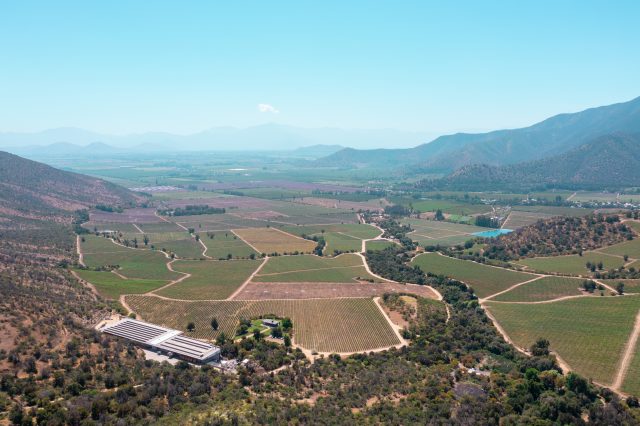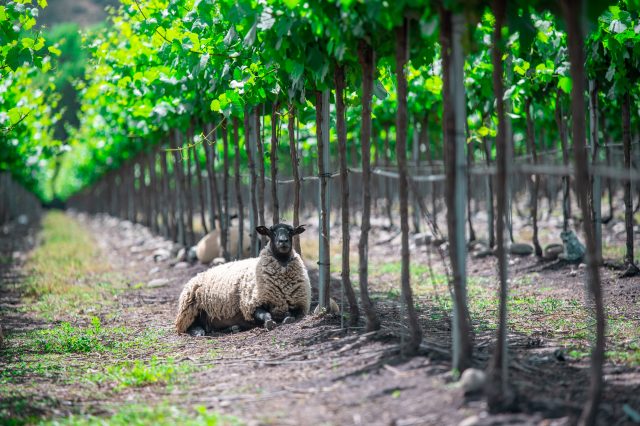This website uses cookies so that we can provide you with the best user experience possible. Cookie information is stored in your browser and performs functions such as recognising you when you return to our website and helping our team to understand which sections of the website you find most interesting and useful.
VSPT’s new sustainability model accelerates it towards net zero
Chile’s VSPT Wine Group takes a major step forward, as its new sustainability model drives towards UN-backed goals and a zero carbon future.

“A good model evolves over time,” says Carolina Gotuzzo, Corporate Affairs and Sustainability Director at VSPT Wine Group. “Our goal is to remain at the cutting edge of sustainability.”
Although the producer, among Chile’s largest, has long been working in the field of sustainability, 2024 marks a watershed year for its plans as VSPT’s new sustainability model comes into operation. The strategy incorporates internationally recognised targets, aligning with 12 of the UN’s 17 sustainable development goals.
Emphasising sustainability from the vineyard to the glass, the model offers a clear path towards the company’s 2030 goals. These include 100% industrial and agricultural waste management and 100% renewable energy in the vineyards and winery. The targets are, in themselves, stepping stones to VSPT’s goal of net zero by 2050.
VSPT’s new sustainability model is divided into two areas: climate change and sustainable progress. Under the climate change remit, the producer will have six focuses, working on waste management, ecodesign, renewable energy, water management, biodiversity conservation and sustainable viticulture. The remit of sustainable progress, meanwhile, ensures a holistic approach with targets for conscious consumption, stakeholder communities and innovation.
Gotuzzo is keen to emphasise that, although the sustainability model is new, VSPT “did not start from scratch” in its latest programme. Instead it is an evolved practice that allows new priorities to lead the way.
In fact, the company has prioritised sustainability since 2010. The 360º Sustentable programme, launched in that year, sought to realise 360 sustainable initiatives by 2015. Successful completion of that scheme was a key reason why VSPT won the title Green Company of the Year at the drinks business Green Awards 2015.

VSPT has also been instrumental in collaborative efforts to create a more sustainable wine trade. “As a mission that involves all of us,” explains Gotuzzo, “addressing climate change requires a collective effort. For this reason, entities such as the IWCA, of which we are a Gold Member, and the Sustainable Wine Round Table, of which we are founders and members, as well as many other instances, are essential for us to advance together towards cleaner production.”
These international efforts are complemented by national ones. In 2013, VSPT was one of the first producers to be certified under the Wines of Chile National Sustainability Code. Gutuzzo suggests Chile is particularly vulnerable to climate change, with water scarcity a specific pressure on the country’s vineyards. VSPT has therefore already launched its first water footprint project to safeguard the water cycle that supplies its vines.
Certainly, the challenge of creating a sustainable wine industry is immense. Gutuzzo’s assessment is that it is a careful balancing act: “address climate change with resilience, but also with a sense of urgency.”
It is doubly important as some regions cannot afford to fall behind the curve on sustainable practice. “Undoubtedly, the market has been more demanding of New World producers,” she explains. “Because of that, the Chilean industry had to develop sustainability strategies early on in order to remain a competitive, world-class player.”
Yet the significant work from VSPT on its new sustainability model is a necessary transition. As a forward thinking New World producer, it is well placed to lead on the industry’s sustainable journey. “The New World has experience,” says Gotuzzo. “The Old World has not had to meet such demands until now, as we face a common emergency—climate change.”
Related news
Viña Concha y Toro signs deal with China's Wuliangye baijiu

